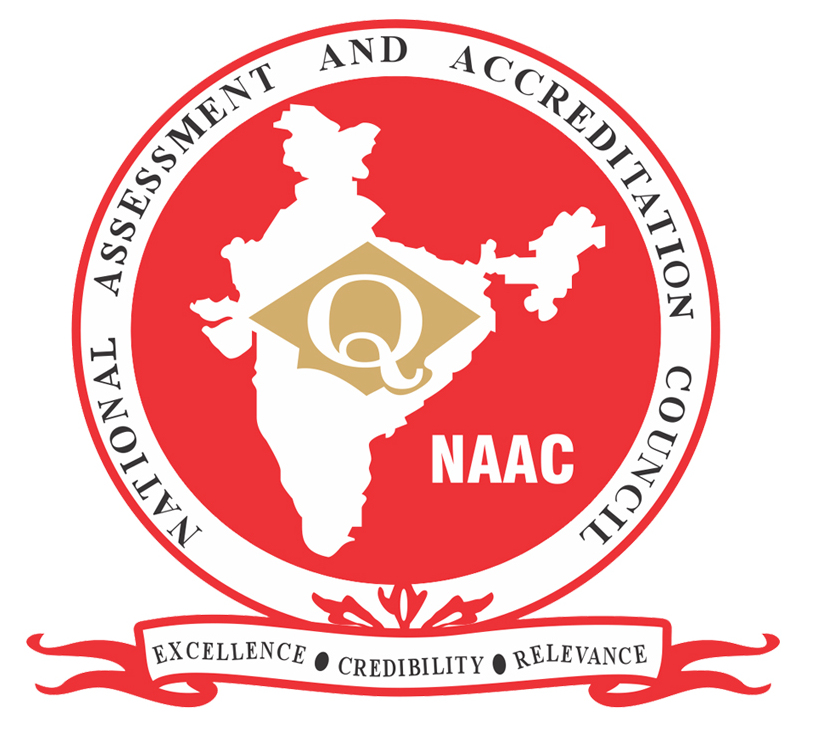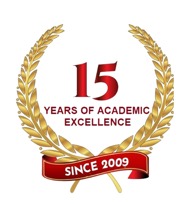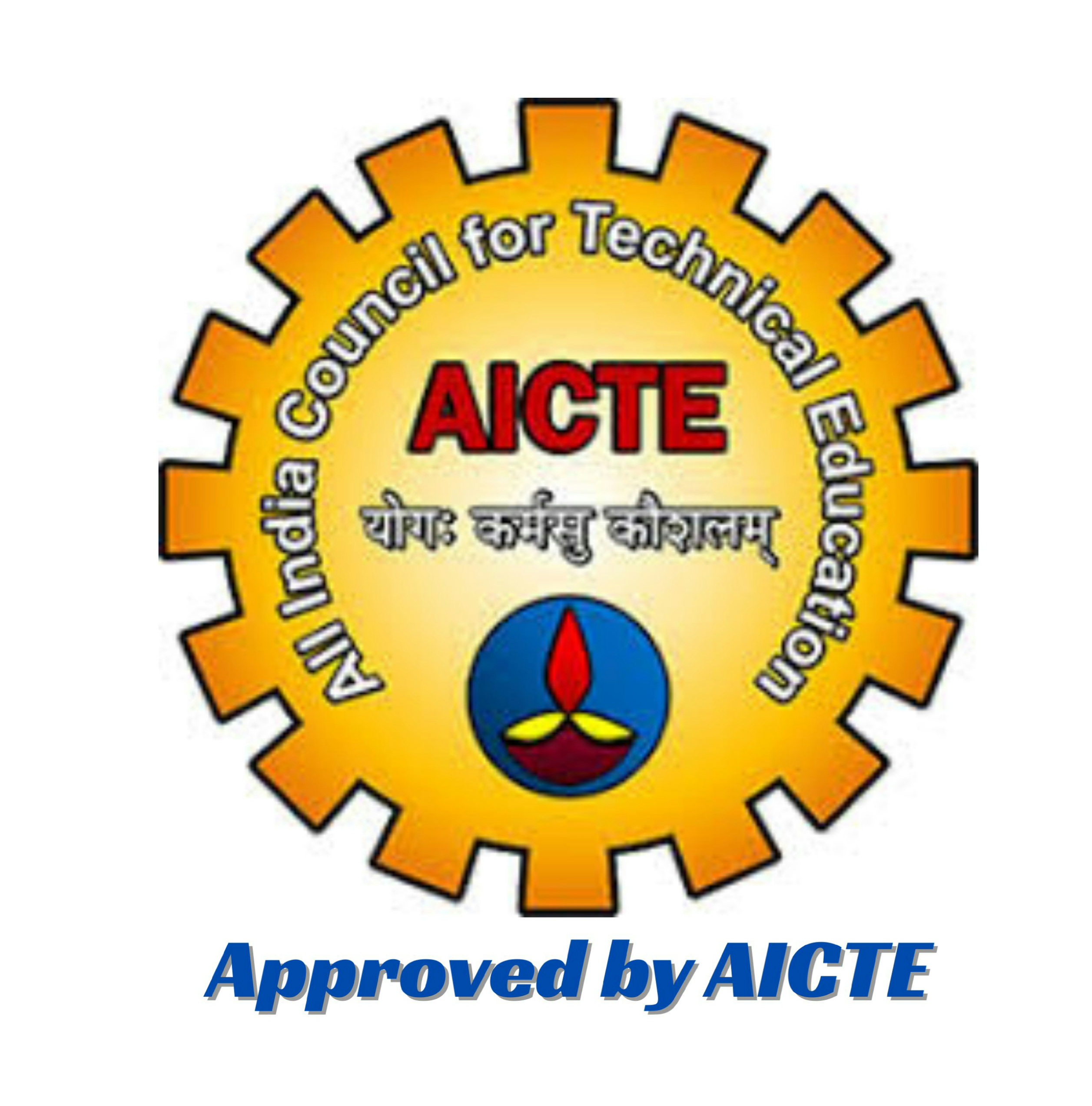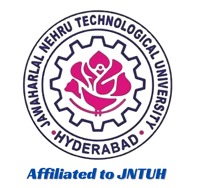Computer Science & Engineering(CSE) Course Outcomes
"Empowering minds, shaping futures — Priyadarshini College is where learning meets purpose."DATA STRUCTURES
- Know the characteristics of various components.
- Understand the utilization of components. Design and analyze small signal amplifier circuits.
- Learn Postulates of Boolean algebra and to minimize combinational functions
- Design and analyze combinational and sequential circuits
- Know about the logic families and realization of logic gates.
COMPUTER ORIENTED STATISTICAL METHODS
- Apply the concepts of probability and distributions to some case studies
- Correlate the material of one unit to the material in other units
- Resolve the potential misconceptions and hazards in each topic of study.
- Understand the Basics of Statistics and Data Analysis
- Apply Statistical Software for Data Analysis
OBJECT ORIENTED PROGRAMMING USING C++
- Able to develop programs with reusability
- Understand C++ Fundamentals
- Develop programs for file handling
- Handle exceptions in programming
- Develop applications for a range of problems using object-oriented programming techniques
COMPUTER ORGANIZATION AND ARCHITECTURE
- Understand the basics of instructions sets and their impact on processor design.
- Demonstrate an understanding of the design of the functional units of a digital computersystem.
- Evaluate cost performance and design trade-offs in designing and constructing a computer processor including memory.
- Design a pipeline for consistent execution of instructions with minimum hazards
- Recognize and manipulate representations of numbers stored in digital computers
CS301PC: DIGITAL ELECTRONICS
CS301PC: DIGITAL ELECTRONICS
· Understand digital systems fundamentals
Grasp number systems (binary, octal, hexadecimal), binary codes, logic gates, Boolean algebra, canonical forms, and digital storage/register basics.
· Simplify and realize Boolean functions
Use Karnaugh Maps (up to 5 variables), apply “don’t-care” conditions, and implement logic functions using NAND/NOR two-level gate logic·
Design combinational circuits
Analyze and construct combinational circuits such as adders/subtractors, multipliers, comparators, decoders, encoders, multiplexers, demultiplexers—and even describe them using HDL·
Develop sequential circuits
Work with latches, flip-flops (SR, JK, D, T), shift registers, and counters (ripple, synchronous), including state analysis and assignment methods. ·
Explore memory and programmable logic devices
Understand RAM/ROM architecture and memory decoding; introduce PLAs, PALs, and related programmable devices.
CS308PC: DATA VISUALIZATION -R PROGRAMMING /POWER BI
1.Understand how to import data into Tableau
2.underatand Tableau concepts of Dimensions and Measures.
3.devolp programs and understand how to map Visual Layouts and Graphical Properties.
4.create a Dashboard that links multiple visualizations.
5.use graphical user interface to create Frames for providing solutions to real world problems
DATA STRUCTURES LAB
- Ability to develop C programs for computing and real-life applications using basic elements like
control statements, arrays, functions, pointers and strings, and data structures like stacks,
queues and linked lists. - Ability to Implement searching and sorting algorithms
CS 307PC:OBJECT ORIENTED PROGRAMMING THROUGH JAVA LAB
1.Able to write programs for solving real world problems using the jav collection framework.
2.Able to write programs using abstract slasses.
3.Able to write multithread programs.
4.Able to write GUI programs using swing controls in java
GENDER SENSITIZATION LAB
- Students will be sensitized to basic dimensions of the biological, sociological, psychological and legal aspects of gender. This will be achieved through discussion of materials derived from research, facts, everyday life, literature and film.
2.Students will attain a finer grasp of how gender discrimination works in our society and how to counter it.
3.Students will acquire insight into the gendered division of labour and its relation to politics and economics.
4.Men and women students and professionals will be better equipped to work and live together as equals.
5.Students will develop a sense of appreciation of women in all walks of life.Through providing accounts of studies and movements as well as the new laws that provide
protection and relief to women, the textbook will empower students to understand and respond to gender violence.
CS403PC:OPERATING SYSTEMS
- Will be able to control access to a computer and the files that may be shared
- Demonstrate the knowledge of the components of computer and their respective roles in
computing. - Ability to recognize and resolve user problems with standard operating environments.
- Gain practical knowledge of how programming languages, operating systems,
- Gain practical knowledge of how architectures interact and how to use each effectively.
CS404PC:DATABASE MANAGEMENT SYSTEMS
- Gain knowledge of fundamentals of DBMS, database design and normal forms
- Master the basics of SQL for retrieval and management of data.
- Be acquainted with the basics of transaction processing
- Be acquainted with the basics of concurrency control.
- Familiarity with database storage structures and access techniques
DISCRETE MATHEMATICS
- Ability to understand and construct precise mathematical proofs
- Ability to use logic and set theory to formulate precise statements
- Ability to analyze and solve counting problems on finite and discrete structures
- Ability to describe and manipulate sequences
- Ability to apply graph theory in solving computing problems
CS405PC:SOFTWARE ENGINEERING
-
Ability to translate end-user requirements into system and software requirements, using e.g.UML
- structure the requirements in a Software Requirements Document (SRD).
- Identify and apply appropriate software architectures and patterns to carry out high level designof a system
- be able to critically compare alternative choices.
- Will have experience and/or awareness of testing problems and will be able to develop a simple
testing report
CS407PC:DATABASE MANAGEMENT SYSTEMS LAB
- Design database schema for a given application and apply normalization
- Acquire skills in using SQL commands for data definition and data manipulation.
- Develop solutions for database applications using procedures, cursors and triggers
CS406PC:OPERATING SYSTEMS LAB (Using UNIX/LINUX)
- Simulate and implement operating system concepts such as scheduling, deadlock
management, file management and memory management. - Able to implement C programs using Unix system calls
SM402MS:BUSINESS ECONOMICS AND FINANCIAL ANALYSIS
- Economic variables on the Business.
- The Demand, Supply, Production, Cost, Market Structure,
- Pricing aspects are learnt.
- The Students can study the firm’s financial position by analysing the
- Financial Statements of a Company.
MC410:CONSTITUTION OF INDIA
- Improve their knowledge about Indian constitution .
- Value their identity and exercise their fundamental rights.
- Understand how differently government bodies function
CS502PC:COMPUTER NETWORKS
- Gain the knowledge of the basic computer network technology.
- Gain the knowledge of the functions of each layer in the OSI and TCP/IP reference model.
- Obtain the skills of subnetting and routing mechanisms.
- Familiarity with the essential protocols of computer networks,
- how essential protocols of computer networks can be applied in network design and implementation.
CS515PE:PRINCIPLES OF PROGRAMMING LANGUAGES (Professional Elective - I)
- Acquire the skills for expressing syntax and semantics in formal notation
- Identify and apply a suitable programming paradigm for a given computing application and Gain knowledge of and able to compare the features of various programming languages
- Understand the core principles that govern programming languages.
- Compare and contrast various language paradigms and their features.
- Design simple interpreters or compilers for basic languages.
CS721PE:INFORMATION RETRIEVAL SYSTEMS(Professional Elective – II)
- Ability to apply IR principles to locate relevant information large collections of data
- Ability to design different document clustering algorithms
- Implement retrieval systems for web search tasks.
- Design an Information Retrieval System for web search tasks
- Implement and Understand Advanced IR Topics
EN508HS:ADVANCED COMMUNICATION SKILLS LAB
- Gathering ideas and information to organise ideas relevantly and coherently.
- Making oral presentations.
- Writing formal letters.
- Transferring information from non-verbal to verbal texts and vice-versa.
- Writing project/research reports/technical reports.
- Participating in group discussions.
- Engaging in debates.
- Facing interviews.
MC510:INTELLECTUAL PROPERTY RIGHTS
- Distinguish and Explain various forms of IPRs. Identify criteria’s to fit one’s own intellectual work in particular form of IPRs.
- Apply statutory provisions to protect particular form of IPRs.
- Analyse rights and responsibilities of holder of Patent, Copyright, Trademark, Industrial Designetc.
- Identify procedure to protect different forms of IPRs national and international level.
- Develop skill of making search using modern tools and technics.
III Year - II Sem
CS635PE:SOFTWARE TESTING METHODOLOGIES(Professional Elective - III)
- Design and develop the best test strategies in accordance to the development
model. - Understand Software Testing Principles and Life Cycle
- Apply Different Types of Testing
- Design and Implement Test Cases
- Use Testing Tools and Techniques
EC600OE:FUNDAMENTALS OF INTRNET OF THINGS
- Interpret the impact and challenges posed by IoT networks leading to new architectural model
- Illustrate the smart objects and the technologies to connect them to network.
- Compare different Application protocols for IoT.
- Infer the role of Data Analytics and Security in IoT.
- Identify sensor technologies for sensing real world entities and understand the role of IoT in various domains of Industry.
CS603PC:DESIGN AND ANALYSIS OF ALGORITHMS
- Ability to analyze the performance of algorithms
- Ability to choose appropriate data structures and algorithm design methods for a specified
application - Ability to understand how the choice of data structures and the algorithm design methods
impact the performance of programs - Implement and Analyze Classical Algorithms
- Understand Graph Theory and its Algorithms
CS625PE:SOFTWARE TESTING METHODOLOGIES LAB(Professional Elective - III)
- Design and develop the best test strategies in accordance to the development model.
CS604PC:MACHINE LEARNING LAB
- understand complexity of Machine Learning algorithms and their limitations;
- understand modern notions in data analysis-oriented computing;
- be capable of confidently applying common Machine Learning algorithms in practice and
implementing their own; - Be capable of performing experiments in Machine Learning using real-world data.
CS605PC:COMPILER DESIGN LAB
- Design and develop interactive and dynamic web applications using HTML, CSS, JavaScript
and XML - Apply client-server principles to develop scalable and enterprise web applications.
- Ability to design, develop, and implement a compiler for any language.
- Able to use lex and yacc tools for developing a scanner and a parser.
- Able to design and implement LL and LR parsers.
CS602PC:COMPILER DESIGN
- Demonstrate the ability to design a compiler given a set of language features.
- Demonstrate the the knowledge of patterns, tokens & regular expressions for lexical analysis.
- Acquire skills in using lex tool & yacc tool for devleoping a scanner and parser. Design and implement LL and LR parsers
- Design algorithms to do code optimization in order to improve the performance of a program in
terms of space and time complexity. - Design algorithms to generate machine code.
CS601PC:MACHINE LEARNING
- Understand the concepts of computational intelligence like machine learning
- Ability to get the skill to apply machine learning techniques
- to address the real time problems in different areas
- Understand the Neural Networks
- Understand the Neural Networks usage in machine learning application
CYBER SECURITY
- Understand cyber-attacks, types of cybercrimes, cyber laws and also howtoprotectthem self and ultimately the entire Internet community from such attacks
- Understand the Fundamentals of Cyber Security
- Apply Security Principles to Network Infrastructure
- Learn about Cryptography and Encryption
- Analyze and Defend Against Common Cyber Attacks
IV Year-I Sem
CS701PC:CRYPTOGRAPHY AND NETWORK SECURITY (PC)
- Student will be able to understand basic cryptographic algorithms, message
- Student will be able to understand basic web authentication
- Student will be able to understand basic security issues.
- Ability to identify information system requirements for both of them such as client and server.
- Ability to understand the current legal issues towards information security.
CS724PE:INTERNET OF THINGS (Professional Elective - V)
- Interpret the impact and challenges posed by IoT networks leading to new architectural models.
- Compare and contrast the deployment of smart objects and the technologies to connect them
to network. - Appraise the role of IoT protocols for efficient network communication.
- Elaborate the need for Data Analytics and Security in IoT.
- llustrate different sensor technologies for sensing real world entities and identify the
applications of IoT in Industry.
MT7010E:Principles Of Entrepreneurship
- Understand basics of Entrepreneurship. (Knowledge)
- Explain financing and managing the new ventures. (Application)
- Understand schemes and functions of different corporations. (Evaluation)
- Explain industrial final support from different corporations. (knowledge)
- Describe production and marking management. (Comprehension)
CS703PC:CRYPTOGRAPHY AND NETWORK SECURITY LAB(PC)
- Understand basic cryptographic algorithms, message and
- Understand web authentication and security issues.
- Identify information system requirements for both of them such as client and server.
- Understand the current legal issues towards information security.
Project Stage – I
- Understand programming language concepts, object oriented concepts as well as software engineering principles or go through the research work and gather knowledge over the field and develop an ability to apply them to software design of real life problems in an industry/ commercial environment
- Plan, analyze, design a software project and demonstrate the ability to communicate effectively in speech and writing
- Demonstrate originality in the application of knowledge, together with a practical understanding of how established techniques professional enquiries are used to create and interpret knowledge in their discipline.
- Introduce with major software engineering topics and position them to lead medium sized software projects in industry or propose any new model over the selected field of research that will be useful for future activities
- Advance their knowledge and to develop new skills to a high level with complex issues both systematically and creatively, make sound judgments on the complete data, and communicate their conclusions clearly to specialist and non-specialist audiences
CS714PE:CLOUD COMPUTING (Professional Elective - IV)
- Ability to understand the ways in which the cloud can be programmed and deployed.
- Understand the Basics of Cloud Computing
- Understand Virtualization in Cloud Computing
- Understanding cloud service providers.
CS702PC:DATA MINING (PC)
- Ability to understand the types of the data to be mined and present a general classification of
tasks and primitives to integrate a data mining system. - Apply preprocessing methods for any given raw data.
- Extract interesting patterns from large amounts of data.
- Discover the role played by data mining in various fields.
- Choose and employ suitable data mining algorithms to build analytical applications
Evaluate the accuracy of supervised and unsupervised models and algorithms.






